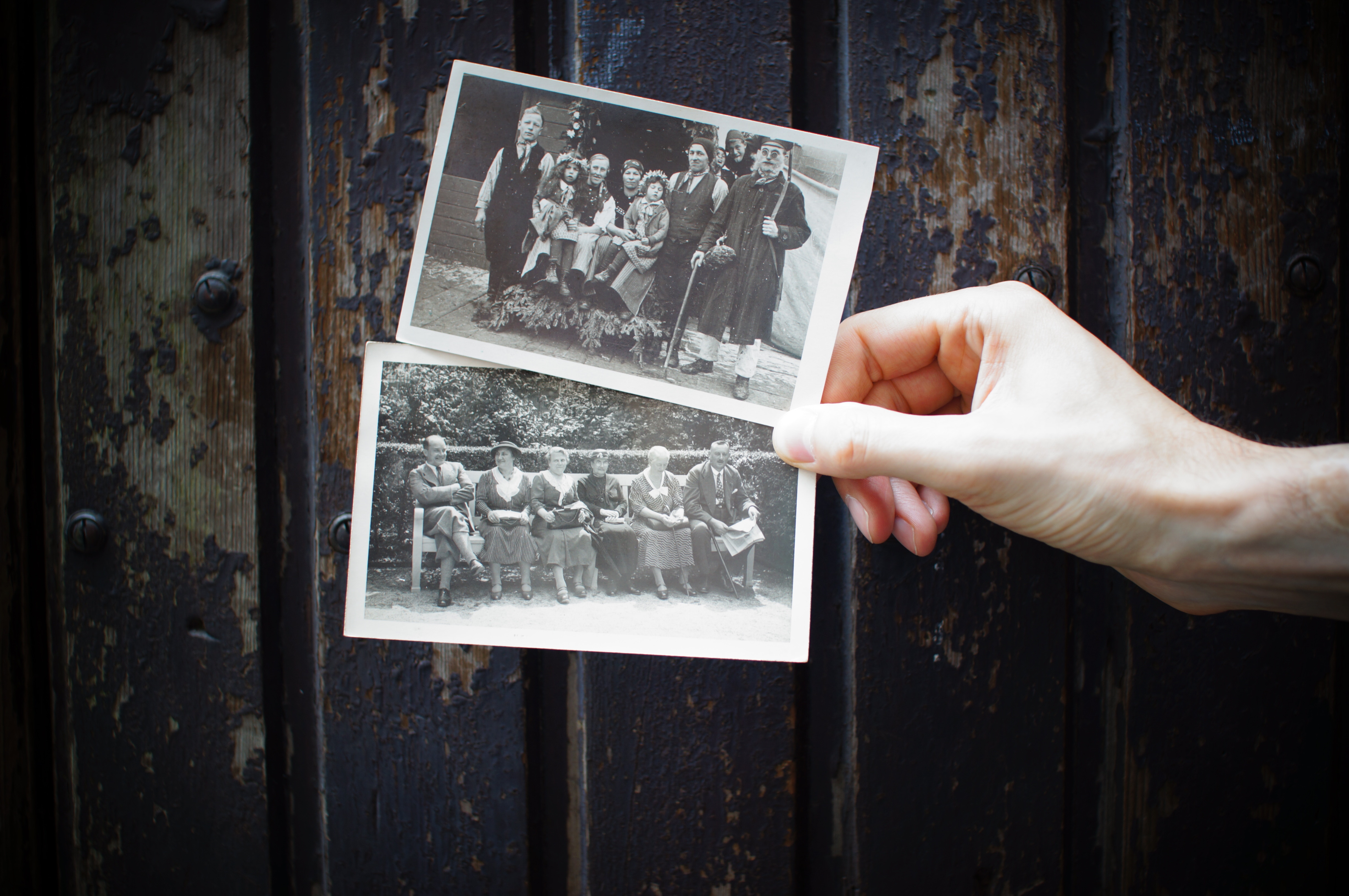I first ran across a mention of household idols years ago when reading Genesis 31. The little statues were common in cultures across the Ancient Near East, and figured prominently in the story of Jacob’s separation of his family from his father-in-law Laban. This isn’t just an ancient practice, as I’ve visited Hindu homes, where there are shrines to the gods the family worships. These kinds of small “g” gods promise protection and prosperity for adherents, with the bonus that they are visible to the worshipper. When I think of idols, I first think of these unblinking figures carved from wood or stone.
The Unseen Holy God confronted our desire to have gods we could touch, see, and manage, even as we’re tempted to rely on them to bring order to what feels like a dangerous, unpredictable world. The first and second commandment of the Ten reads:
You shall have no other gods before me.
“You shall not make for yourself an image in the form of anything in heaven above or on the earth beneath or in the waters below. You shall not bow down to them or worship them; for I, the Lord your God, am a jealous God, punishing the children for the sin of the parents to the third and fourth generation of those who hate me, but showing love to a thousand generations of those who love me and keep my commandments. (Exodus 20:3-6)
In modern American Christian culture, we like to think we have moved past the superstitious worship of idol-figures promising us fertility, good weather, and fortune. We may not have shrines filled with statues set up in our homes, but our big blind spot has been the living shrines that leave dishes in the sink in our homes.

As I noted here, in our culture it is easy to point to the big three—money, sex, and power—as idols. Some may recognize the control these things have over their lives. But I’d like to suggest that most of us have a personalized collection of housebroken idols vying for our love every single day. They may be destructive little gods, like unforgiveness or addiction. They may be good gifts—like affirmation, appearance, ministry, or a relationship—that have become toxic because we’ve given them the power to define our worth and receive our worship.
One pervasive and oh-so-familiar idol in Christian subculture is the nuclear family. In case you doubt this, ask a Christian single to talk with you about their experience in the church. Most have some pretty sad tales to tell. Same goes for empty nesters. Former pastor Dan Bouchelle shared his observations about the focus on family in most evangelical congregations:
A good friend of mine, who has a Ph.D. in marriage and family therapy, commented a few years ago that we have a near family cult in church. There is a vast supply of family material through Christian bookstores, radio, and TV. There are countless family seminars. . . . Some churches build their whole visions around strengthening family. “Traditional family values” is now synonymous with the gospel for many. It is almost as if the primary purpose of the church is to serve family.
If you would have asked me when my kids were young (three decades ago) if I was guilty of idolizing my family, I would have said no way, then trotted out a bunch of verses about the importance of passing on my faith to my kids and raising them in the fear and admonition of the Lord. Our suburban Christian church culture supported this, as almost every ministry activity was either directly focused on the kids (endless pleas for the congregation to help with Sunday School/Children’s Church and VBS, intense focus on youth group activities), or on encouraging us parents to build a strong home and family (never-ending sermon series about marriage, parenting, finances; seminars, and Bible studies). This focus on the family (pun intended) in the Church was intensified when we stepped into the home schooling movement. The messaging we heard consistently in those circles was that that a strong family would preserve the faith of the next generation, and the next generation’s faith was the key to saving our crumbling culture. We were told we were spiritual exiles in a hostile culture.
My husband and I examined ourselves to make sure we weren’t electing to home school because we were afraid of the Evil Secular Agenda being pushed by our local school district, as we heard again and again from home school proponents. We were clear that this wasn’t a factor. Overcrowded classrooms and administrators indifferent to the academic needs of one of our three kids drove us into that choice. But whirled into the mix was a deep desire to obey God and pass on our faith to our kids. Home schooling promised to offer a way to do that in the context of our family’s life, as well as allowing us to individualize curriculum and goals for each child.
Today, with the vantage point of three decades of life experience, I can see more clearly the idolatry of family cultivated by the church and home schooling subculture. I recognize how my own fears of losing my children to the world’s allure made this a socially-acceptable form of idolatry in my life. The sneaky thing about this kind of idol is that it doesn’t run counter to Scripture’s dictates to train up our children in the way they should go, but it is an unhealthy emphasis on the gift of family over the Giver of those gifts – an emphasis that ends up de-emphasizing trust in the work of the Spirit in favor of the endless sacrifice of parental vigilance. Idolatry promised we could save our kids if only we got the formulas right.
As my children moved through their teen years, I learned how little control I really had over my kids’ choices. Releasing them to the Lord also required me to name and renounce the idolatry I harbored in my own heart toward my living, breathing household idols. I loved them more than my own life and still do, but recognize that in all kinds of subtle (and probably a few not-so-subtle but socially-acceptable ways) gave family a place of worship in my heart reserved for God alone. An unexpected consequence of my repentance came as I realized how tightly I’d wrapped myself in the identity of an exile by focusing on my family. As I shed that protective cocoon, I discovered there was no going back. It was for me the beginning of understanding what it was to be a pilgrim instead – surrendering my household idols to God, trusting his work in the lives of my children, and trusting his work in my life as well.
Have you experienced the effects of this focus on the family in your circles? How have you dealt with it?
Photo by Cheryl Winn-Boujnida on Unsplash



Beautifully said Michelle. Years ago when I had become a single mom through divorce, a family visited me and my 6 year old son. We were thrilled, until they wanted “family” time. They were ok to use us as their hotel, but they went to the zoo, a place my son desperately wanted to go, and left us behind because they needed family time. They did a couple of other things excluding us and I was in tears before the 4 day visit ended. I had no words to explain to my 6 year old about why we were left out.
Years later, this family went through a difficult time, years really, with one child in and out of 3 facilities due to an eating disorder. I’m so sorry this happened in their lives. They are different today because of it. Very inclusive and outreach oriented. I don’t know if they would look back and name family as an idol or not, but they have been transformed by Christ in the midst of deep struggle. And I’ve always viewed their early family years as a time of idolatry.
A thought provoking article. I’m not sure if I’ve idolized family, but I do know that having young adult children has driven me to my knees more than anything else in life thus far.
The biggest issue with the family being idolized is that everyone who doesn’t have one becomes marginalized. It actually ends up hindering the gospel, community, and people feeling like they belong at church. I’ve attended more than one church in my life, and it gets more and more obvious the older you get if you are single, is that the “church family” really doesn’t want you. They don’t know what to do with singles, because they haven’t been single in a long time (in many cases). They can’t fathom other people living differently or maybe never meeting someone. But the truth is that the church is filled (overall in the USA) with many singles. 55% of the population (and in some cases more) is single and unmarried. Married is not the “norm.” in the USA. So how can people who idolize the family so much really do outreach and make non-marrieds seem welcomed? It certainly is not what I’ve seen in church such as: limiting what singles can do in church or how they can serve, using examples that always involve dating, children, and marriage in teaching sermons, never discussing or using a single person as a positive example, making assumptions that women who are unmarried are “picky,” (the truth is most of them have never been approached by anyone), or acting like they are “unknowledgable” or “unwise” or even “immature” because they are unmarried. All of those are so false and horrible. To be honest it has made me question if I want to even continue attending church.. and I’ve gone for decades, but the last place I went to was far overboard. They won’t even allow the unmarried to pray for each other without a married person present. When married people have problems with their kids, or are sick everyone sends them food and kind messages. If you are single? You are ignored and no one reaches out to you to ask if you even need prayer! It is horrible. You are treated like a perpetual teenager as a single person in church. Never mind if you have 40+ years of life experience or wisdom, you won’t ever be able to share that with anyone.